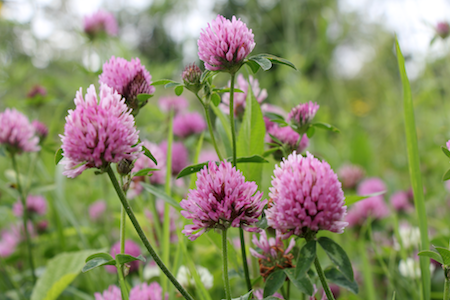Best herbs for fertility
If you’re looking to get pregnant, you’ve probably thought about every option under the sun, but the all-natural method of making babies holds a lot of appeal to many prospective moms. When you’re looking into nature’s options before exploring others, consider the following, but be sure to talk to your doctor first.
- Chaste berry: Also known as Vitex Agnus Castus, chaste berry regulates hormone imbalances. On a small scale, it helped women to get pregnant, but not in a large controlled environment. At the very least, chaste berry helps to regulate your natural cycle, and that’s always good for baby-making.
- Black Cohosh: Sure, it has a funny name, but black cohosh can stimulate your ovaries, and better yet, the eggs inside! If nothing else, it helps to relieve the feeling of menstrual cramps. However, it should only be used in the first half of your menstrual cycle to prevent problems.
- False Unicorn: This root regulates all the business going on in your ovaries. Some people suggest that false unicorn also helps with men’s fertility. Be careful though, and only use it before regulation and before your pregnancy.
- Evening Primrose Oil: In addition to relieving your period symptoms, primrose oil helps you to produce good, fertile cervical fluid. This extra layer helps to protect the little swimmers as they make their way to the egg, leaving a greater chance of fertilization. It’s safe to use from your period to ovulation.
- Red Clover: Red clover is estrogen’s twin hormonally. Though not identical, they can both serve the same purpose, as red clover helps to thicken the uterine lining, which leads to better implantation and increases your fertility.
With any herbal remedy you heard about, be sure to take it with a grain of salt and always talk to your health care provider beforehand. There are very few regulated studies with herbs and fertility, and herbs are not heavily regulated by the FDA. You should probably skip the herbs if you’re already using fertility supplements prescribed to you. After all, being safe is key when dealing with fertility.
Read more
Sources
- Toh MF, Sohn J, Chen SN, Yao P, Bolton JL, Burdette JE. "Biological characterization of non-steroidal progestins from botanicals used for women's health." Steroids. 77(7):765-73. doi: 10.1016/j.steroids.2012.03.013. Web. 6/12/2015.
- Aviva Romm. Botanical Medicine for Women's Health. 1st Ed. Elsevier Health Sciences UK, 2009. Web.





